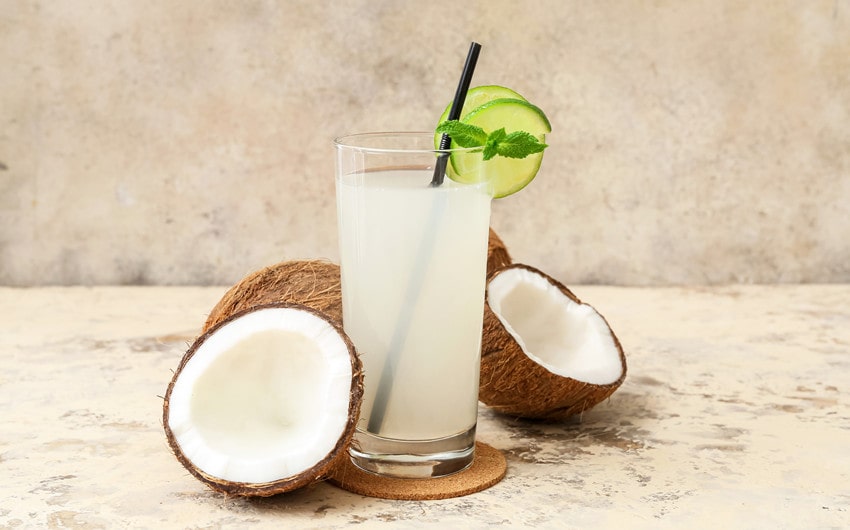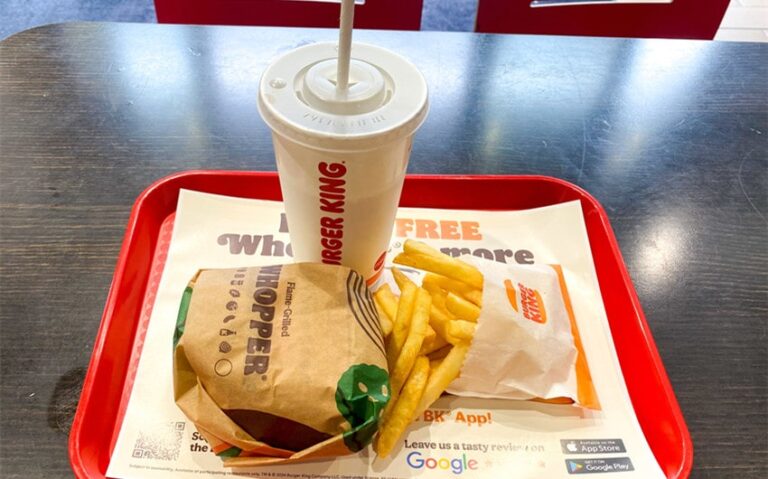Does Coconut Water Go Bad? Everything You Need to Know
Coconut water is a go-to drink for staying hydrated, especially after workouts or on hot days. But like any natural beverage, it doesn’t last forever. If you’ve ever left a bottle sitting in the fridge too long, you might wonder, does coconut water go bad? Yes, it can. Whether it’s fresh from a coconut or store-bought, coconut water can spoil if not consumed in time.
Knowing how to spot the signs of spoilage and store it properly will help you enjoy it safely and reduce waste. Let’s dive into how long it lasts and what to watch for!
Does Coconut Water Go Bad?
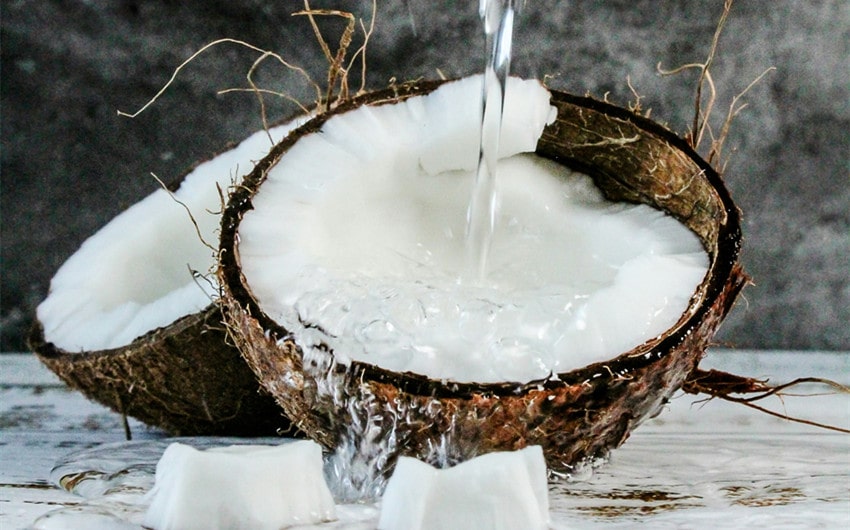
Yes, coconut water does go bad, just like any other natural beverage. Whether it’s fresh from a coconut or purchased in a bottle or carton, coconut water has a limited shelf life. Fresh coconut water tends to spoil faster due to the lack of preservatives, often within 24-48 hours when left at room temperature. Store-bought versions last longer because they are pasteurized and sealed, but even those will go bad once opened if not refrigerated properly.
Exposure to air, heat, and light can speed up the spoilage process. The natural sugars in coconut water can ferment, leading to a sour taste, unpleasant smell, or cloudy appearance. Over time, these signs become more noticeable, making it clear that the drink is no longer safe to consume. To avoid waste and enjoy coconut water at its best, it’s important to consume it promptly and store it under the right conditions.
By being mindful of expiration dates and spoilage indicators, you can safely enjoy coconut water without worrying about whether it has gone bad.
How Long Does Coconut Water Last?
The shelf life of coconut water varies depending on how it’s stored and whether it’s fresh or packaged. Unopened store-bought coconut water can last several months, especially when kept in a cool, dry place. Always check the expiration date on the label. Once opened, it should be refrigerated and consumed within 3 to 5 days to retain its freshness and flavor.
Fresh coconut water, directly from the coconut, is much more perishable. It’s best to drink it within 24 to 48 hours, especially if left at room temperature. When refrigerated, it might last a couple of days, but the flavor can change quickly, becoming sour.
Factors like heat exposure, improper sealing, or leaving opened bottles outside the fridge can shorten the shelf life. Keeping coconut water cold helps maintain its freshness, ensuring you enjoy it at its best.
Signs That Coconut Water Has Gone Bad
Knowing how to tell if coconut water has gone bad is essential to avoid unpleasant surprises. Here are the key signs to look for:
- Sour or Unpleasant Smell: Fresh coconut water has a mild, sweet fragrance. If it smells sour, fermented, or off, it’s a clear sign that it has spoiled.
- Strange Taste: Spoiled coconut water will taste sour, tangy, or even slightly fizzy, which indicates fermentation. Fresh coconut water should taste light, sweet, and refreshing.
- Discoloration or Cloudiness: Coconut water is naturally clear or slightly cloudy. If you notice a significant color change (like turning yellow or very murky), it’s best to throw it out.
- Sediment or Particles: While some natural coconut waters contain minimal sediment, thick or unusual particles floating inside are a sign that it’s gone bad.
- Swollen or Leaking Packaging: If the bottle or carton is swollen, leaking, or appears damaged, it could mean fermentation is occurring inside, making the product unsafe to drink.
- Expiration Date Passed: While some foods can last beyond their expiration dates, coconut water often spoils close to or soon after the printed date. Always check the label and trust your senses.
Paying attention to these warning signs ensures you only drink fresh, safe coconut water. When in doubt, it’s better to discard questionable coconut water rather than risk drinking it.
Proper Storage Tips to Prevent Spoilage
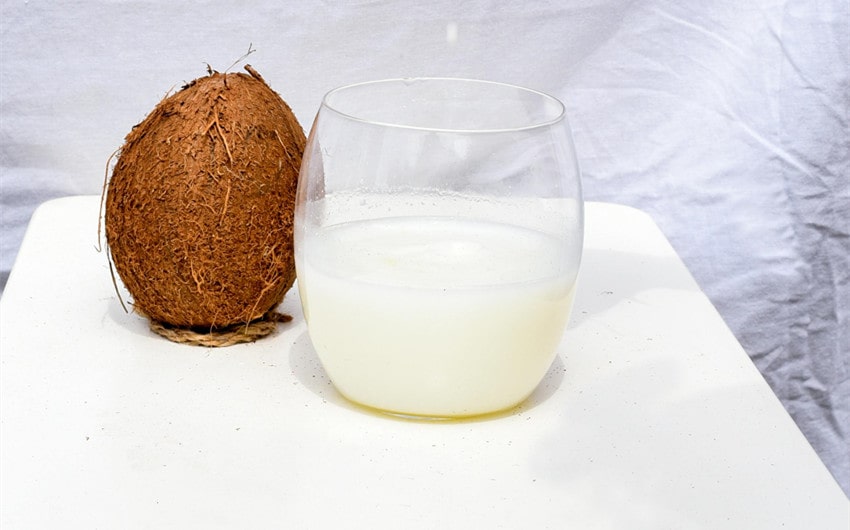
To keep coconut water fresh and safe to drink, storing it properly is essential. Here are some practical storage tips to help prevent spoilage:
1. Refrigerate After Opening
As soon as you open a bottle or carton of coconut water, refrigerate it to slow down bacterial growth. Coconut water left at room temperature for more than a few hours may ferment, causing it to go bad. For the best taste, finish it within 3 to 5 days of opening. Even if it smells fine after that period, the quality may decline, so it’s best to consume it promptly.
2. Store Fresh Coconut Water Properly
If you’ve extracted coconut water directly from a coconut, transfer it to an airtight glass jar or container before placing it in the fridge. Fresh coconut water is more delicate and typically lasts 1 to 2 days under refrigeration. Avoid leaving it in the shell, as the exposed water can ferment and attract bacteria quickly, especially in warm conditions.
3. Keep Bottled or Carton Coconut Water in a Cool, Dry Place
For store-bought coconut water, keep unopened containers in a cupboard or pantry, away from direct sunlight or heat sources. Extreme heat can cause the product to deteriorate, even if it’s sealed. Always check the expiration date before use to ensure freshness. Bottled versions often last for months, but improper storage can shorten their shelf life.
4. Use Airtight Containers
If you pour coconut water into another container, make sure it’s airtight. Exposure to air can speed up spoilage through oxidation, altering both the taste and texture. Glass jars or BPA-free plastic containers work well. Keeping it sealed tightly will preserve its freshness for a few days longer.
5. Avoid Frequent Temperature Changes
Fluctuating temperatures can harm coconut water’s quality. Once refrigerated, try to keep it chilled until you’re ready to drink it. Taking it in and out of the fridge multiple times may cause condensation inside the bottle, creating the perfect environment for spoilage.
6. Freeze Coconut Water for Longer Storage
If you have leftover coconut water that you can’t finish within a few days, freezing it can be a good option. Pour it into ice cube trays or freezer-safe containers, leaving space for expansion. While freezing preserves the water for months, it may slightly alter the taste and texture. Frozen coconut water works great in smoothies or as ice cubes for drinks, though it may not be as enjoyable to drink plain once thawed.
What Happens If You Drink Expired Coconut Water?
Drinking expired coconut water can have varying effects, depending on how long it’s been past its expiration date and whether spoilage signs are present. Here’s what you need to know about the potential risks:
Mild Stomach Upset
If the coconut water has just started to turn, you might experience minor stomach discomfort, such as bloating or mild nausea. Coconut water contains natural sugars, and when these begin to ferment, they can upset your stomach, especially if you’re sensitive to sour or off-tasting foods.
Food Poisoning Symptoms
If the coconut water has gone bad and shows clear signs of spoilage—like a sour odor, strange taste, or cloudiness—you may experience more serious symptoms of food poisoning. These symptoms can include diarrhea, vomiting, stomach cramps, and dehydration. The longer the coconut water has been spoiled, the higher the risk of harmful bacteria developing inside.
Unpleasant Taste and Aftertaste
Even if expired coconut water doesn’t make you sick, drinking it might be an unpleasant experience. The water can taste sour, fermented, or fizzy, leaving a lingering aftertaste. This usually happens as the natural sugars ferment, altering the original flavor.
When It’s Still Safe to Drink
In some cases, unopened coconut water that is just a few days or even weeks past the expiration date might still be safe to drink, provided it was stored properly. If the color, smell, and taste remain normal, it’s likely fine to consume, though the flavor may not be as fresh. Always rely on your senses—if something seems off, it’s better to discard it.
Potential Allergic Reactions or Sensitivities
For individuals with sensitive digestive systems or coconut allergies, drinking spoiled or expired coconut water may trigger allergic reactions. Even though allergic reactions are rare, some people might experience rashes, itching, or more severe symptoms like swelling.
Can You Freeze Coconut Water to Make It Last Longer?
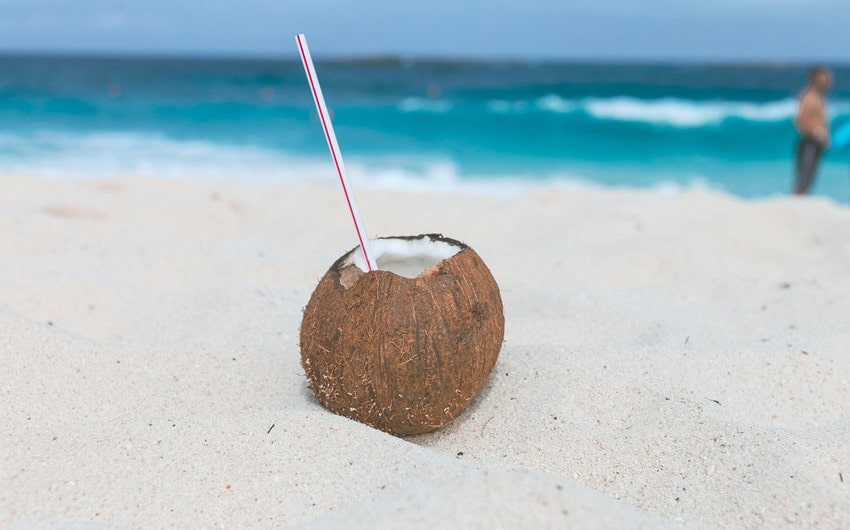
Yes, freezing coconut water is an effective way to extend its shelf life, especially if you have leftovers or bought in bulk. However, there are a few things to keep in mind to preserve the flavor and texture as best as possible. Here’s a step-by-step guide on how to freeze coconut water properly and what to expect once it’s thawed:
Freezing Coconut Water: How to Do It Right
Pour the coconut water into ice cube trays or freezer-safe containers. If using a bottle or jar, leave some space at the top since liquids expand when frozen. Avoid freezing it in the original packaging unless it’s flexible (like a plastic bottle).
Ice cube trays are particularly useful if you plan to use coconut water in smoothies or to chill other beverages. You can also pop the cubes directly into water or juice for a refreshing twist.
How Freezing Affects Taste and Texture
While freezing preserves coconut water’s freshness for several months, it may slightly alter its taste. The natural sweetness might become more muted, and the texture could feel a bit thinner once thawed. It’s still perfectly safe to drink but may not taste as crisp as fresh coconut water.
For drinking plain, the slight change in taste may be noticeable, but it works wonderfully for recipes like smoothies, fruit juices, or cocktails.
Thawing Frozen Coconut Water
To thaw frozen coconut water, transfer it from the freezer to the refrigerator and let it sit for several hours or overnight. If you’re in a rush, you can leave it at room temperature for a few hours, but avoid exposing it to direct heat, as this can affect the flavor further.
Once thawed, make sure to consume it within a day or two. Thawed coconut water should not be refrozen, as this will further degrade its quality and increase the risk of spoilage.
Freezing Fresh vs. Packaged Coconut Water
Fresh coconut water (from the coconut) can be frozen, but its flavor might degrade more quickly than packaged versions. If you extract coconut water yourself, freeze it promptly to lock in its freshness.
Packaged coconut water typically freezes better since it’s pasteurized and designed to last longer. However, always check for any manufacturer guidelines on freezing before storing it this way.
How Long Can Coconut Water Stay Frozen?
Coconut water can remain frozen for up to 3 months without significant loss in quality. After that, it’s still safe to drink, but the flavor and texture might be affected more noticeably. It’s a good idea to label containers with the date to keep track of how long it’s been in the freezer.

